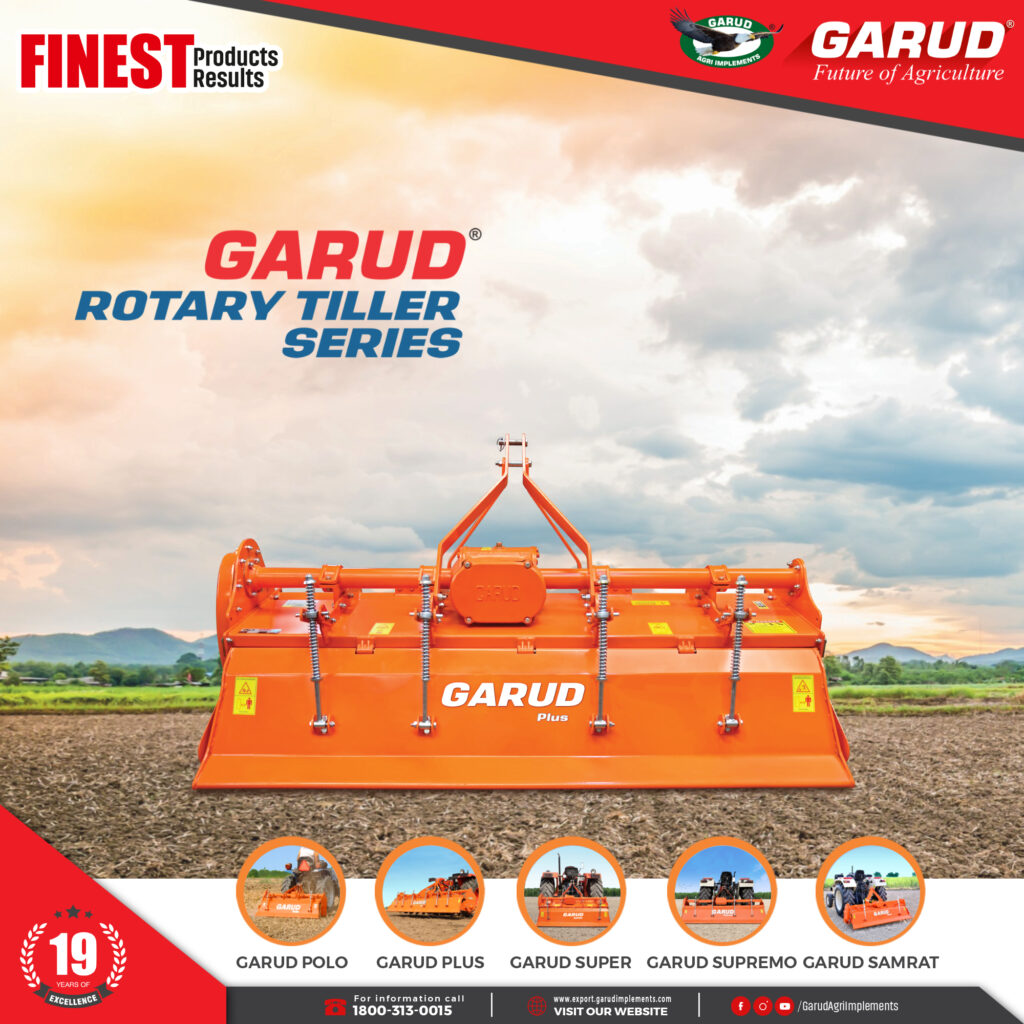
Rotavator | Assembly, Uses, Maintenance and Safety of Rotavator
July 8, 2024Case Study: Enhancing Agricultural Efficiency with Laser Land Levelers
July 12, 2024Introduction
In the diverse agricultural landscape of India, small-scale farmers face numerous challenges, including limited resources, labor shortages, and the need for efficient land preparation techniques. This case study explores the impact of using rotavators on small-scale farming in India, focusing on productivity, cost-effectiveness, and sustainability.
Background
A rotavator, also known as a rotary tiller, is a farm implement used for soil preparation. It combines the functions of a plow and a harrow, effectively breaking up and leveling the soil in a single pass. particularly useful in regions with hard or compacted soil, as they reduce the need for multiple tillage operations.
Objective
The primary objective of this case study is to evaluate the benefits and challenges associated with the adoption of rotavators by small-scale farmers in India. https://www.youtube.com/channel/UCrWmBlhQ6MPqRV-UTHfjVFA Key metrics include soil health, crop yield, labor and cost savings, and overall economic impact.
Methodology
Selection of Study Sites: The study focuses on three diverse regions in India: Punjab (northern region), Maharashtra (western region), and Tamil Nadu (southern region). These regions were chosen due to their varying soil types, climatic conditions, and cropping patterns.
Farmer Selection: A total of 50 small-scale farmers from each region were selected for the study. were chosen based on their willingness to adopt rotavator technology and their engagement in crop cultivation practices.
Data Collection: Data was collected through surveys, interviews, and field observations. Key parameters measured include soil structure, moisture retention, crop yield, labor requirements, fuel consumption, and financial costs.
Control Group: For comparison, a control group of farmers using traditional tillage methods (plowing and harrowing) was also included in the study.
Results
Soil Health:
- Farmers using rotavators reported improved soil structure and reduced soil compaction.
- Increased organic matter incorporation and better soil aeration were observed.
Crop Yield:
- On average, crop yields increased by 15-20% across all regions with rotavator use.
- Crops such as wheat, maize, and paddy showed significant yield improvements due to better seedbed preparation.
Labor and Cost Savings:
- Rotavators reduced the need for multiple tillage operations, leading to a 30-40% reduction in labor costs.
- Fuel consumption decreased by 25%, contributing to overall cost savings.
Economic Impact:
- Farmers experienced a significant increase in net income due to higher yields and reduced operational costs.
- The initial investment in rotavators was offset by the savings and increased revenue within two cropping seasons.
Challenges
Initial Investment: The high initial cost of purchasing a rotavator was a barrier for some small-scale farmers, despite the long-term benefits.
Training and Maintenance: Farmers required training on the proper use and maintenance of rotavators to ensure optimal performance and longevity.
Soil Conditions: In regions with very hard or rocky soil, rotavators faced operational challenges, necessitating occasional use of traditional plowing methods.
Conclusion
The adoption of rotavators by small-scale farmers in India has shown significant positive impacts on productivity, cost-effectiveness, and soil health. While initial investment and training are critical factors, the long-term benefits of using rotavators outweigh the challenges. By improving soil preparation efficiency and reducing labor and fuel costs, rotavators contribute to the sustainability and economic viability of small-scale farming in India.

Recommendations
- Subsidies and Financing: Government and agricultural agencies should consider providing subsidies or financing options to help small-scale farmers afford.
- Training Programs: Implementing comprehensive training programs on the use and maintenance of rotavators can enhance their effectiveness and lifespan.
- Research and Development: Continued research into rotavator technology and its adaptation to different soil conditions will further improve its utility for small-scale farmers.
This case study demonstrates that with the right support and resources, rotavator can be a game-changer for small-scale agriculture in India, promoting sustainable farming practices and enhancing food security.
